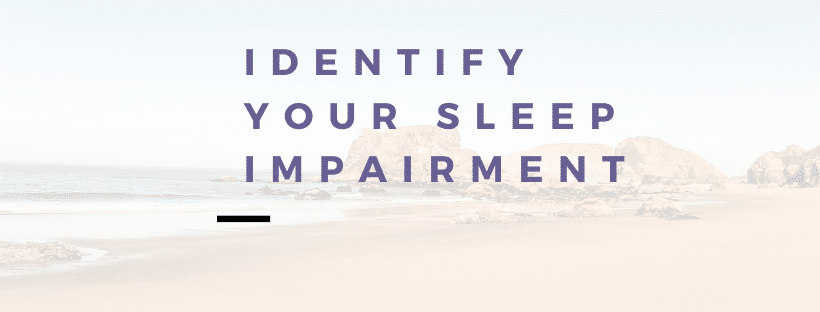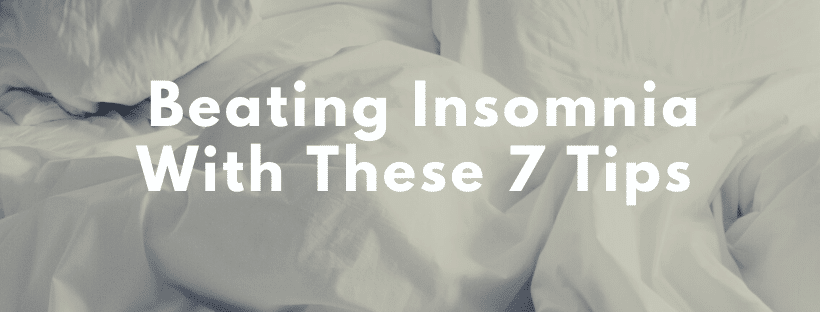
Medicating Your Sleep Woes
When sleep deprivation continues for a long period of time – even days in a row – you may be willing to try anything just to give you the ability to catch a few Zs. Before you get desperate, make sure you understand how each option works.
The first thing many consumers do when a few nights of sleeplessness causes daytime drowsiness is head for the pharmacy for some over-the-counter solutions. Sleep aids can often help initially, but they don’t get to the root of the problem.
Asleep aid shouldn’t be used as your cure. It might help you function initially, but you want to find out why you’re having sleep issues. Having to rely on a pill to get some sleep isn’t the best option for your health.
Some people get dependent on the pills and can’t sleep without them. Others see too many side effects from the use of sleep aids, or they wind up with complications due to how it interacts with their prescription medicines.
Over the counter sleep aids usually work using an antihistamine, which is what doctors use to treat allergies. They make you feel sleepy and help you stay asleep. Some people report feeling sleepy the next day, so it could interfere with your sleep cycles.
Side effects can include constipation, dizziness, memory loss, blurred vision, and dry mouth. As you grow dependent on them, your need for a higher dosage increases. A doctor might prescribe something stronger, such as a non-benzodiazepine.
These help you feel sleepy by revving up the natural chemical process of your brain. If you want a sleep aid for long-term use, they’re safer than using over-the-counter, short-term remedies, but they can also lead to an addiction.
It’s rare these days, but your doctor might prescribe a tranquilizer if your sleep disorder is severe enough. These slow your nervous system down to make you sleepy. It’s a short-term solution that can leave you feeling groggy the following day.
You might be put on antidepressants or anti-anxiety medications that act as sedatives if your doctor feels it’s the right choice for you. These are common but don’t have the same potentially addictive features as the other prescription medicines.
If you want to forego the medical options and choose something more natural, then you might consider an herbal treatment for your sleep disorder. Certain herbs have a reputation for aiding in sleep, such as chamomile, which can be consumed in a tea form.
Valerian root, melatonin, and SAMe are other herbal alternatives you can try. Make sure you take the proper doses, because sometimes even too much of a good thing can sometimes result in unwanted side effects.
Medications Used for the Sleep Disorder of Chronic Insomnia

People that suffer from the sleep disorder of chronic insomnia must decide whether or not they are going to take sleep medication. This decision is usually made with their physician. Many people decide to take a sleeping pill because it offers relief from the symptoms of their sleep disorder and the extreme sleepiness they are always feeling. Taking a pill can improve how they fell and also the quality of their life. However, many people worry about the side effects and health risks that come with taking sleeping pills. Sleeping pills are among the most widely used drugs in the United States, and their use continues to increase.
The types of sleep medications that are available to people with insomnia fall into two categories, prescription, and over-the-counter medications. Each sleep medication affects the body differently. The effectiveness of the sleeping pill is a major factor when dealing with sufferers of this sleep disorder. How quickly the pill will take effect and how long the effect will last are very important. The effect should match the individual’s sleep problem. The fast-acting drugs would benefit a person who has difficulty falling asleep while a longer-lasting pill would better benefit someone who has difficulty staying asleep.
Other important factors concerning medications for people with this sleep disorder include the impact the medication has on sleep quality, the tolerance that a person has for the drug, the possibility of developing a dependence on the drug, and the side effects associated with the drug. Each of these points has to be considered when deciding to take sleep medication for chronic insomnia.
Many over-the-counter sleep medications contain some type of antihistamine as a primary active ingredient. Antihistamines are widely used to treat allergies and they are also effective in helping people fall asleep. However, there has been little research done on their long-term effectiveness or safety.
Prescription medications for the sleep disorder of chronic insomnia are classified into four general groups: benzodiazepine receptor agonists, antidepressants, melatonin receptor agonists, and barbiturates. Each one of these drug groups has specific benefits in regards to treating insomnia. However, it is very important that the right type of for chronic insomnia medication is prescribed for each individual person with this sleep disorder.
Before choosing a sleeping medication, it is very important to determine the source of insomnia. For example, perhaps the source of insomnia is the result of another treatable illness or a side effect of a medication that is taken. The insomnia is then called secondary insomnia. The focus on medication should then be on the primary illness. Often insomnia will disappear once the underlying cause is treated.
The decision of whether or not to take sleep mediation for chronic insomnia has to be a personal decision. There is no right or wrong decision. However, it is important, if the choice is to take a medication for this sleep disorder, to become as educated as possible about the medication prescribed.
Recognize the Signs and Symptoms of Sleep Apnea

Sleep apnea is a condition where your breathing is not continuous while you’re asleep. Your breathing stops temporarily and this pause in breathing can happen multiple times throughout the night.
Sleep apnea can occur without you even being aware that you have it. It’s usually a family member or a spouse that notices – and even then, he or she may not be aware that loud snoring or sudden bursts of gasping for air is a sign of sleep apnea.
The gasping stems from not enough oxygen passing through to your lungs because your air can become blocked as it tries to move through the airways. This condition causes breaks in your sleep and because you’re asleep, it escapes your notice.
What you may notice, however, is that it’s hard to function in the daytime. You may feel sleep-deprived and have a strong urge to take a nap. Having sleep apnea and not knowing you have it can be deadly if it’s not treated.
Sleep apnea that remains undiagnosed can lead to diabetes, heart attacks, other heart problems – even premature death because the apnea can cause your heart to begin beating erratically and throwing it into an irregular rhythm that you can’t recover from.
One of the most noticeable signs that you might have this condition is snoring that’s loud enough to wake others. If others have complained about how loud you snore, it’s time to get that checked out.
Another sign you might notice is that your throat is sore when you first wake up. You might chalk it up to allergies or sleeping in a cool room, but this is caused by snoring. You may have a headache upon waking – and this is caused by both the sleep interruptions and a lack of getting the proper amount of oxygen.
Getting up throughout the night to urinate can be a sign – or you may also wake up feeling like your mouth is full of cotton. Having sleep apnea can make you feel sluggish, cause you to experience periods where you struggle to remember things and it can even cause changes in your mood.
If you’re overweight, then you’re at high risk for sleep apnea. Children can also have a form of sleep apnea known as obstructive sleep apnea – and they can have this form of sleep apnea regardless of whether or not they’re overweight.
The symptoms for this are much the same as sleep apnea in adults. You might notice that your child is too sleepy during the day and struggles to pay attention during school hours. A doctor may be able to tell that the child’s tonsils are swollen, which is often a sign of the condition.



















